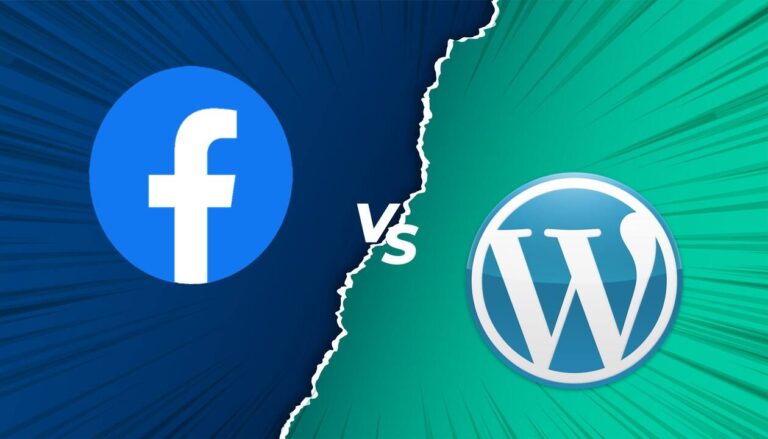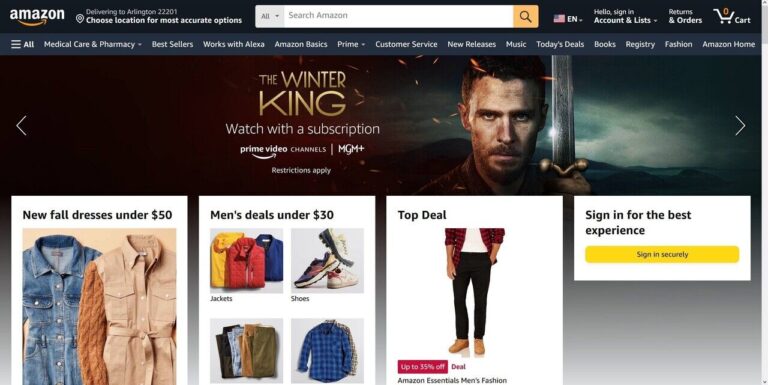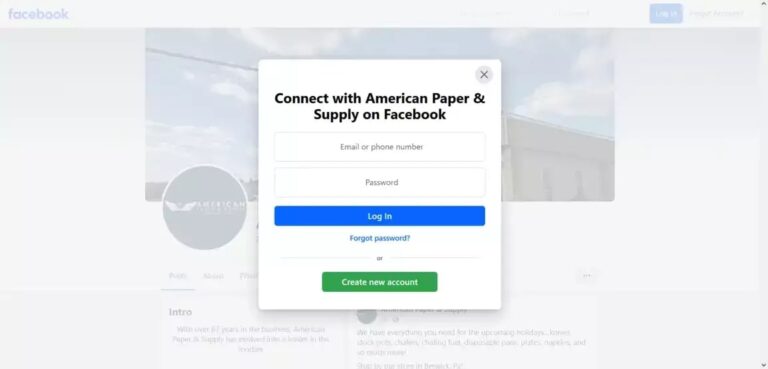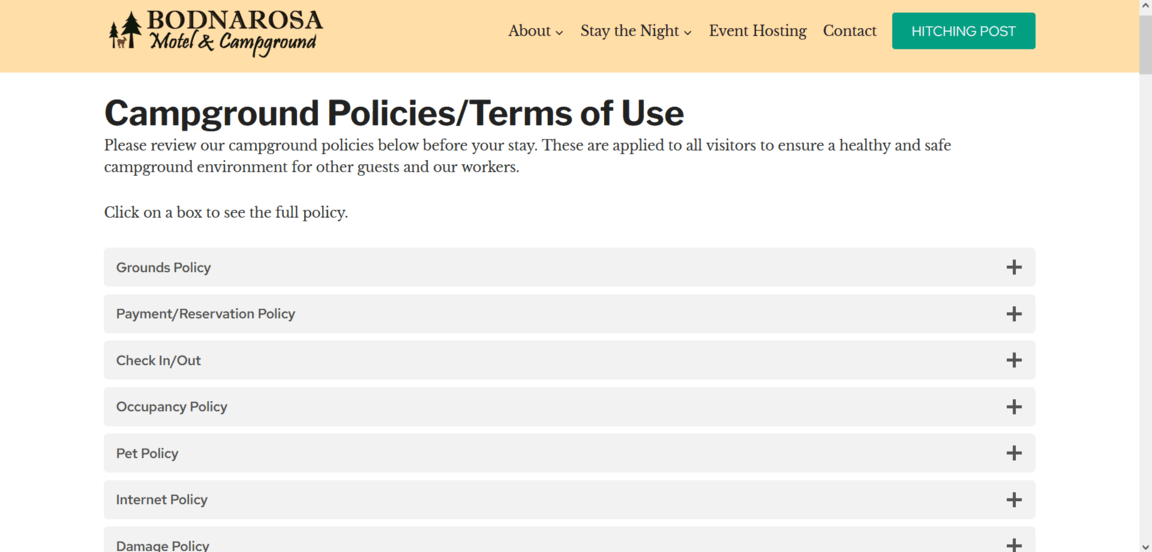Do I need a website if I have a Facebook page?

It’s a question that many businesses ask themselves, especially small businesses.
After all, Facebook is a free and easy-to-use platform with over 2.9 billion active users across the world. It even allows you to create a business profile and interact directly with members of your audience. In this way, it provides a valuable 2-way avenue for communication to answer questions and build a brand following.
In contrast, a website costs design, hosting, domain ownership, and ongoing security and performance maintenance fees just to remain online and available in search engines. Furthermore, without a skilled and knowledgeable web designer, many websites turn out clunky and unpleasant to use.
At an initial glance, it’s easy to understand why many small business owners end up asking whether they even need a website if they can have a Facebook page for free, or at least, on the surface for free. In reality, building a successful Facebook profile can get quite expensive.
You might note though that while small businesses ask this question, it’s never one that gets asked by businesses that are serious about competing in their field. While there’s no doubt that Facebook is a powerful tool for your marketing arsenal, it’s not the only one, nor the most effective one. Having a website is essential for any business, regardless of size or industry.
10 reasons why you need a website, even if you have a Facebook page
1. Control your own destiny
When you have a website, you have complete control over your online presence within it. You’ll have your own design, content, and navigation, and can also add or remove features as needed. This degree of customization is unheard of on any social media platform, where every page is a forgettable cookie-cutter template. You can take advantage of this to tailor a specially crafted experience for your users that will be memorable and unique.
2. Showcase your products or services
A website is the perfect place to showcase your products or services. You can create pages dedicated to displaying detailed information and listings in a user-friendly manner, as well as include high-quality photos, videos, and better formatted written text. When designed right, these listings are significantly easier to browse. You can further set up categories, suggested product algorithms, and even search bars to encourage customers even more.
Facebook is a good platform for sharing short updates about your business, but it’s not as effective at showcasing your products or services in detail. You can pin some of your information for more visibility, however the nature of social media means that most of what you post will inevitably end up getting buried out of sight.

3. Reach a wider audience
With a website, you can reach a wider audience than you would if you only had a Facebook page. While 2.9 billion sounds like a massive number, it’s still only a fraction of the people actually using the web. Limiting your web presence to social media excludes a major segment of your potential audience who doesn’t use social media.
Even if your account is set to public, Facebook will use popups and content cutoffs to ruin the user experience for viewers that don’t have their own account in an effort to force them to sign up. This can give those viewers a bad impression of your business is Facebook is your only online presence. In contrast, anyone with the web can freely view your website without disruption, opening the doors to a broader market.

4. Build trust and credibility
A website helps you build trust and credibility with potential customers. When people see that you have invested time and money into a professional website, it shows legitimacy by advertising that you a serious business and an expert in your market. This means they’ll be more likely to trust and do business with you.
Facebook is a great platform for connecting with people, but it’s not always seen as a credible source of information. Anyone can freely create an account, fill it with fake data, and purchase thousands of false likes to seem more legitimate.
“Facebook has deleted a staggering 27.67 billion fake accounts since October 2017, which is 3.5 times more than the total population of planet Earth. Facebook deletes hundreds of millions, sometimes more than a billion, fake accounts each quarter.”
-Ernestas Naprys, Senior Journalist of Cybernews, 2023
In 2021, Facebook reported that around 5% (142 million) of its accounts were fake. Since then, many experts have estimated the real number to be around 16% or 464 million at any given time. With this in mind, it’s understandable why Facebook consistently ranks lowest among major social platforms in Insider Intelligence’s yearly “US Digital Trust Survey.”
5. Own your data
When you have a website, you own your data. This means that you can collect and analyze data about your visitors and customers. The data can be used to improve your website and marketing strategies.
With Facebook, you don’t own your data. Facebook owns your data, and they can use it however they want. This includes sharing it with other companies that may be your competitors.
6. Generate leads and sales
A website helps you generate leads and sales. You can include contact forms, calls to action, and other lead generation tools on your website to directly boost engagement or sell your products and services online.
Facebook is a good platform for building relationships with potential customers and sometimes generating leads, but it’s not as effective for direct sales and the leads are usually colder.
7. Establish yourself as a thought leader
Since posts and pages don’t get buried as easily as on social media, maintaining a website is a great way to establish yourself as an expert in your industry. You can use your website to publish blog posts, articles, videos, and other content that demonstrates your expertise. As a bonus, this content can more easily show up in search engines compared to posts on social media, which likely will not show at all.
Facebook is a good platform for sharing short updates about your industry, but it’s not as effective at publishing in-depth content or SEO content.
8. Gain a competitive advantage
In today’s digital world, most businesses have a website and take advantage of many of the perks they offer. If you don’t have a website, you’re placing yourself at a competitive disadvantage. However, if you do, you’ve immediately elevated yourself above your rivals that don’t.
In a tight commercial market, every edge can make the difference between success and failure.
9. Improve your customer service
Did you know a website can help passively improve your customer service? You can include FAQs, knowledge bases, support forums, and other specialized resources to help customers find the answers they need with a few clicks or a keyword search.
Facebook is a good platform for interacting with customers, but it’s not as effective at providing self-service support and requires a team member to actively monitor the account and make replies. If they fall behind or don’t answer comments, it will generate negative feelings toward your brand.

10. Measure your results
You can use analytics tools to track website traffic, leads, and sales to measure your results. This data can help you understand what’s working and what’s not as you plan for the future.
Facebook provides some analytics, but they’re not as comprehensive as the analytics you can get from a website.
The Verdict: Facebook vs Websites
To put it simply, if you’re serious about your business, you need a website.
For as many wonders that social media can do for your business, it’s no substitute for a dedicated website. From personalized branding and experience tailoring to enhanced sales processes and increased exposure, the cookie-cutter nature of a Facebook page will always fall short next to the potential of a proper business website.
You can use a Facebook page as an initial base while your business is starting out and you should continue to use it as a supplement for your online presence down the road, but relying solely on it can only take you so far in professional markets. When your business is past the trial phase and ready to commit to being a proper business, it’s time for a website of your own.
If you’re not sure where to start, don’t worry. Here at Web Wolf Design, we specialize in building websites for all manner of businesses and organization. To get started, contact us for a free consultation.
